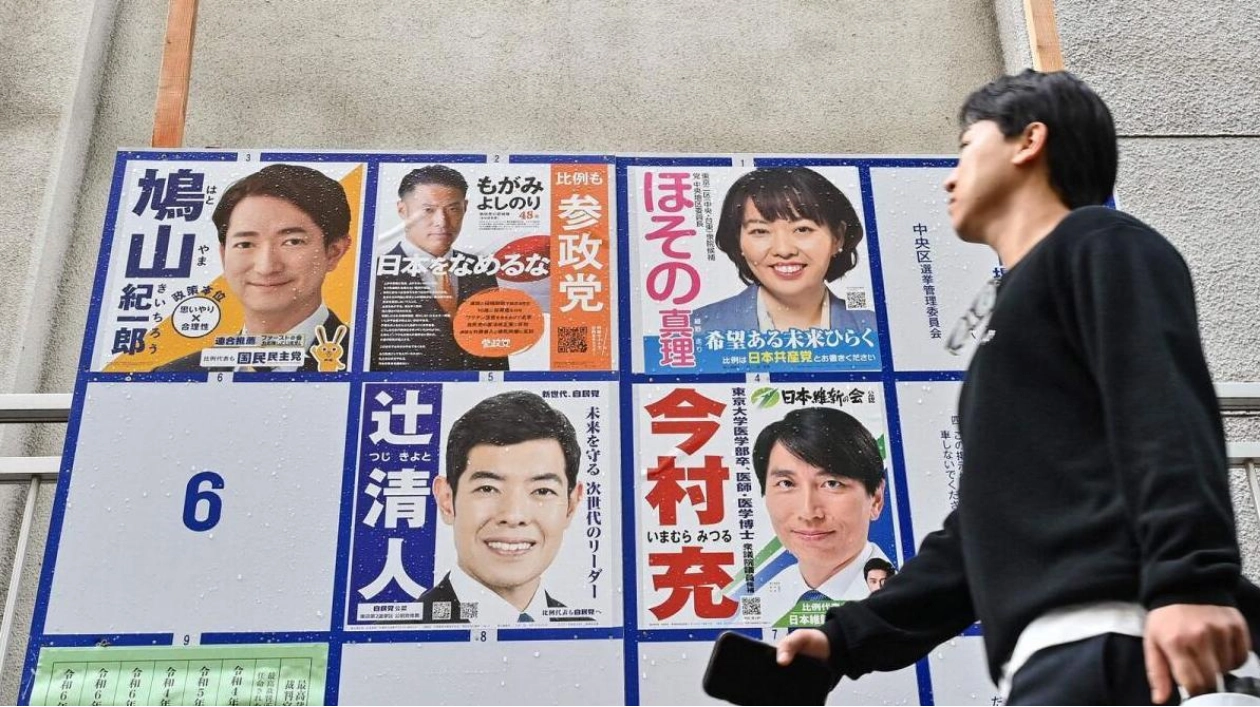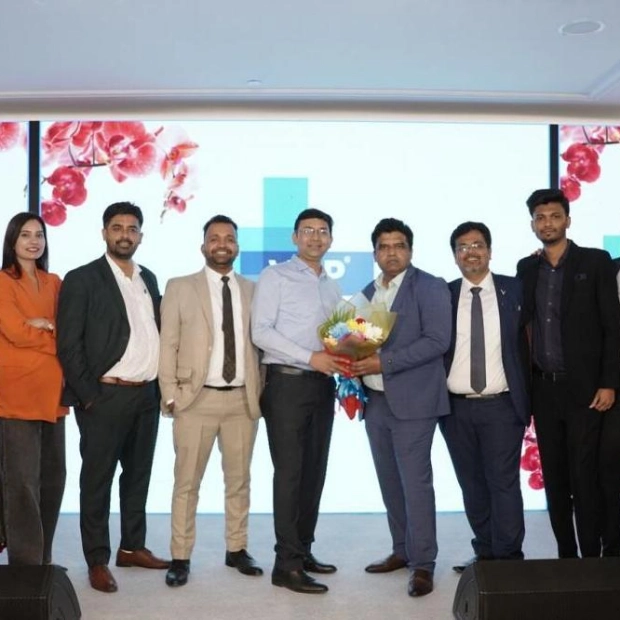A pedestrian strolls past a billboard in Tokyo showcasing campaign posters for Japan's recent general election. New lawmaker Saria Hino, one of a record number of women in Japan's parliament, took her seat on November 11. AFP
New lawmaker Saria Hino joined Japan's parliament on Monday as part of a historic influx of women, but during her campaign, a voter questioned her: "Who's taking care of your children?" The mother of four was among 73 women elected to the 465-seat House of Representatives in October's vote—the highest number ever, yet still a minority at 16 percent. Having secured a win in central Japan's Aichi region, the 36-year-old aims to "deliver a message from the front lines" of those raising children or caring for the elderly.
"The responsibility for children's growth should not rest solely on their parents," said Hino, who was elected under the opposition Democratic Party for the People. "I want to develop policies based on the extensive firsthand knowledge I have of what's happening" in preschools and nursing homes, she told AFP. Japan, with the world's second-oldest population after Monaco, has faced decades of stubbornly low birth rates. Factors contributing to fewer children include rising living costs and societal expectations that working mothers should still manage domestic duties, child-rearing, and caring for relatives.
Prime Minister Shigeru Ishiba, who retained his position after a parliamentary vote on Monday, has termed the lack of new babies a "quiet emergency" and pledged to promote flexible working hours. His predecessor, Fumio Kishida, also warned of the demographic crisis, expanding parental leave policies and financial aid for families. Despite the increase in preschools, workforce shortages have led to challenging conditions for nursery teachers, according to Hino. "Similarly, a recent government decision to reduce funding for elderly care facilities is exacerbating caregivers' already difficult work environments," she said, cautioning that closures could ensue.
Women are underrepresented not only in politics but also in business in Japan, ranking 118th out of 146 in the 2024 World Economic Forum's Global Gender Gap report. Veteran female lawmakers like former ministers Seiko Noda and Seiko Hashimoto have highlighted the challenges of balancing motherhood and parliamentary duties in a legislature where debates often run late into the night. Women comprised only a quarter of candidates in the election and still face open sexism. Former deputy prime minister Taro Aso referred to then-foreign minister Yoko Kamikawa as a "rising star" but also as an "aunty" who was "not that beautiful." A 2021 cabinet office survey reported by local media found that one in four female electoral candidates faced sexual harassment during their campaigns.
Sachiko Inokuchi, a 68-year-old doctor elected in a Tokyo district, noted that her opposition Japan Innovation Party has established a babysitting service for lawmakers to address the gender imbalance. She aims to bolster support for mothers in Japan, stating, "I don't want to pass on the adverse effects of a rapidly ageing society with fewer children." Ishiba's conservative Liberal Democratic Party (LDP) and its junior coalition partner lost their majority for the first time since 2009 in the October 27 election. LDP lawmaker Jun Mukoyama, who secured a seat, faced the same question about childcare on the campaign trail—"a question a male candidate wouldn't be asked," the 40-year-old told AFP. Mukoyama, who spent 13 years at a trading house before quitting in her early 30s due to her husband's work relocation and fertility treatments, decided to enter politics, thinking, "If I can never have a child, I want to create a society that is great for children." She was drawn to the LDP's "pragmatic security policy and proven governance capabilities" but felt the party lacked diversity in policy-making, an area she hopes to influence. Mukoyama's priority as a lawmaker is revitalizing Japan's declining rural communities. However, like Hino and Inokuchi, she also seeks to amplify the voices of those "struggling to balance work and family."
Source link: https://www.khaleejtimes.com






